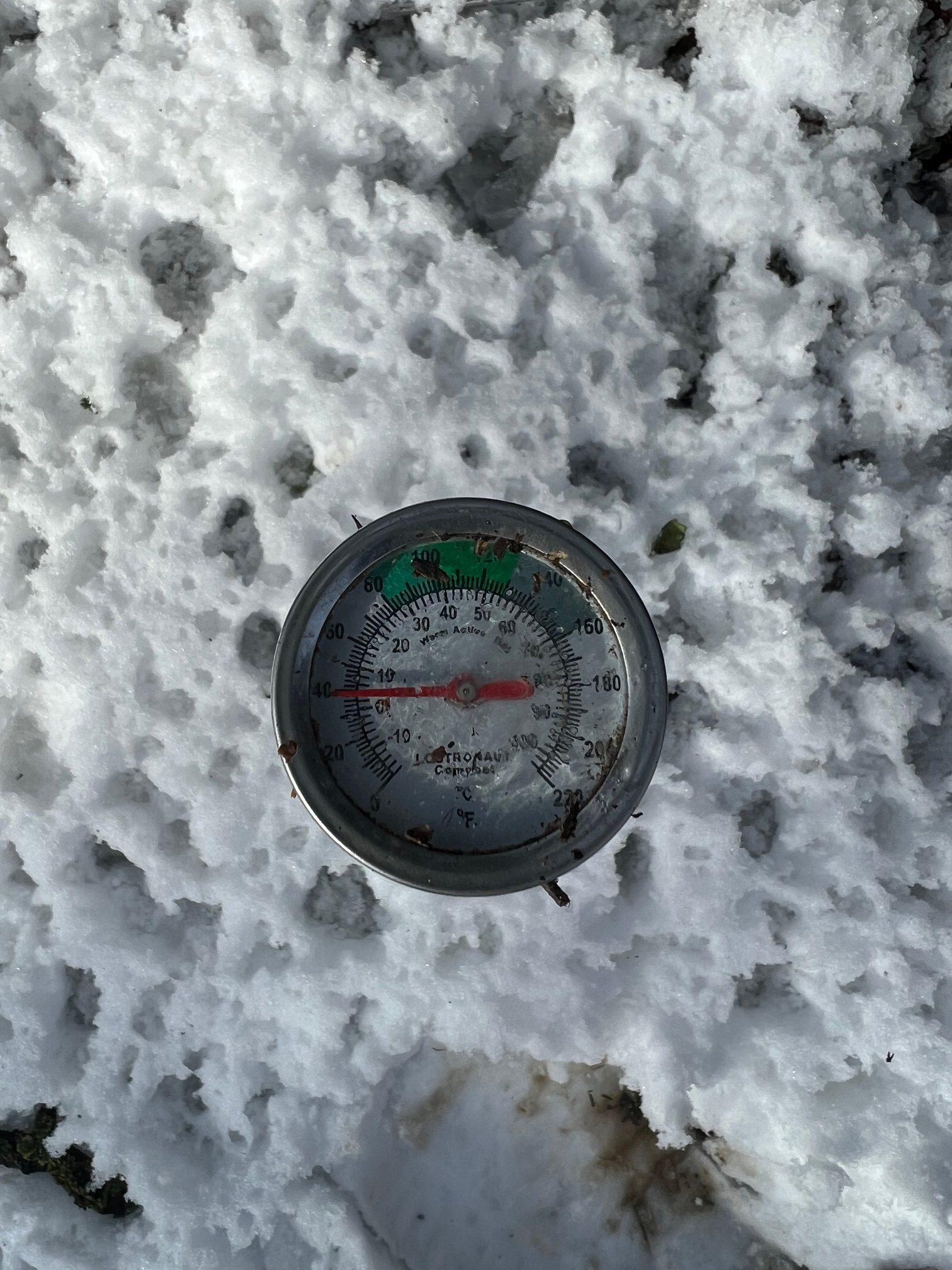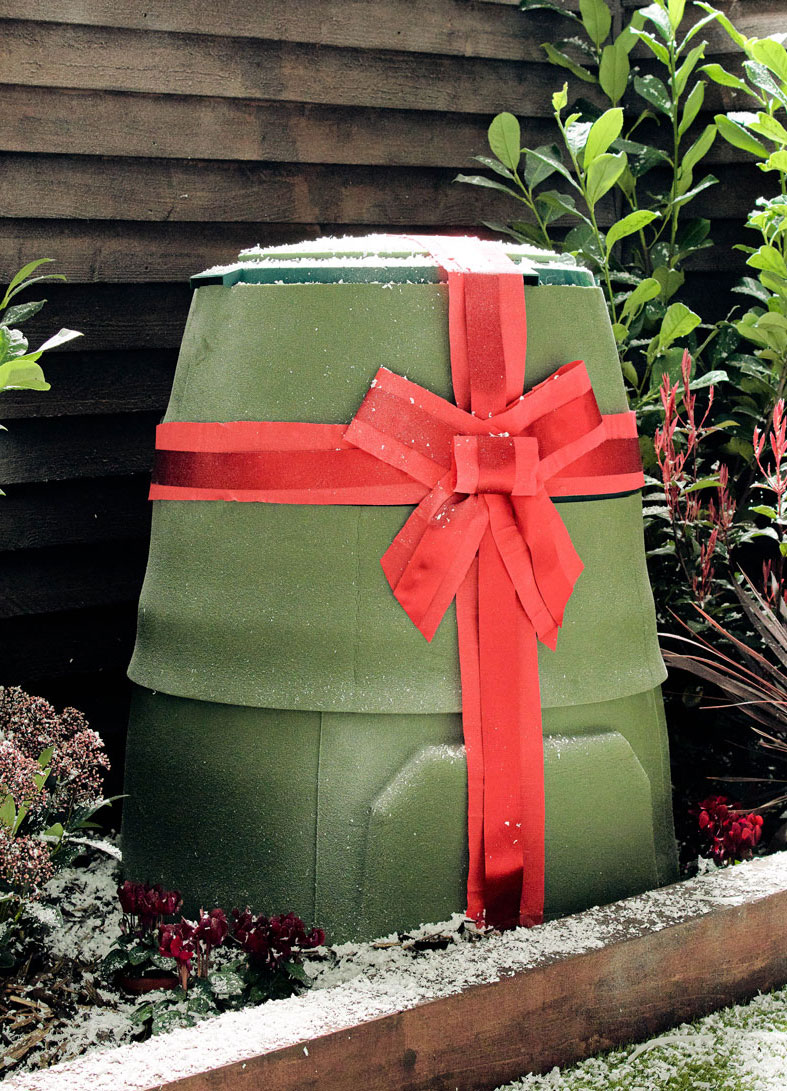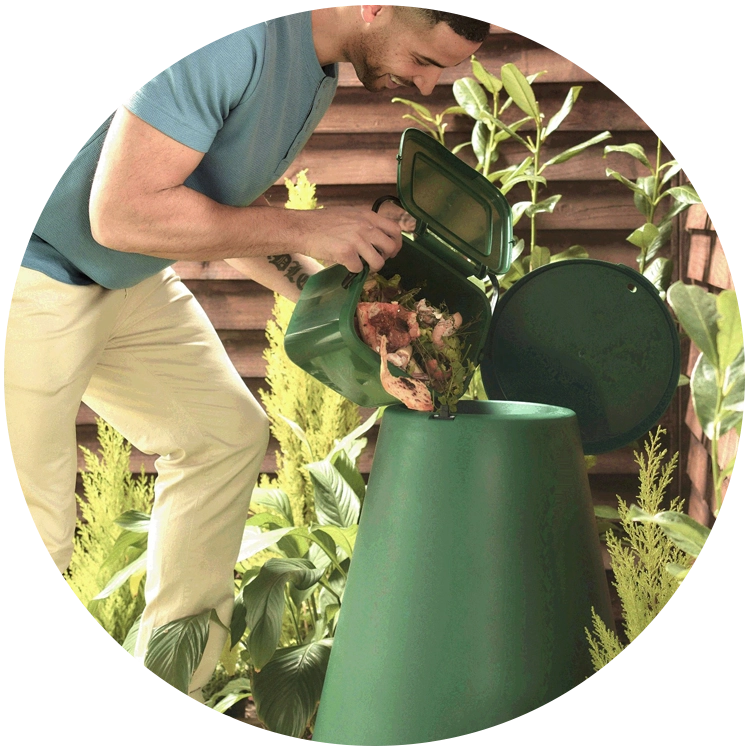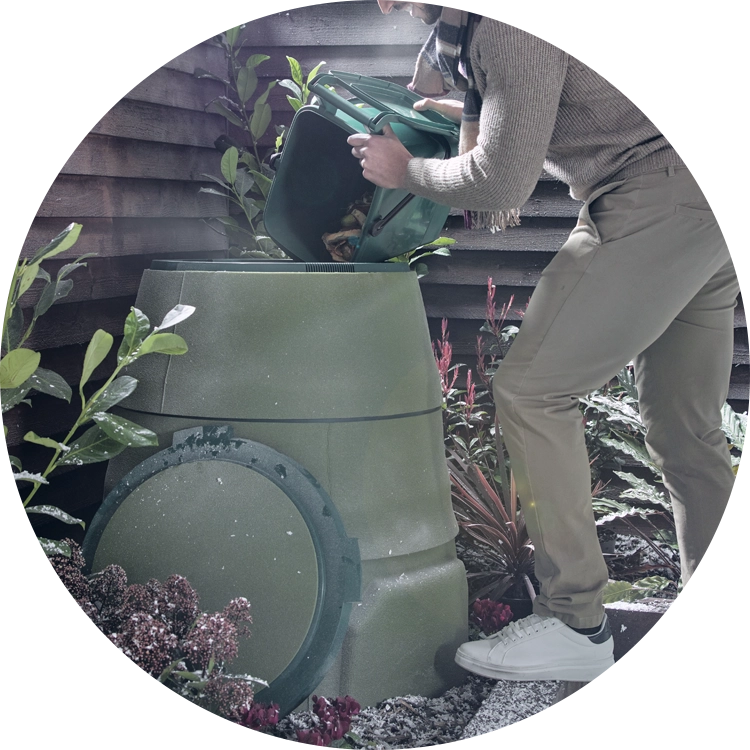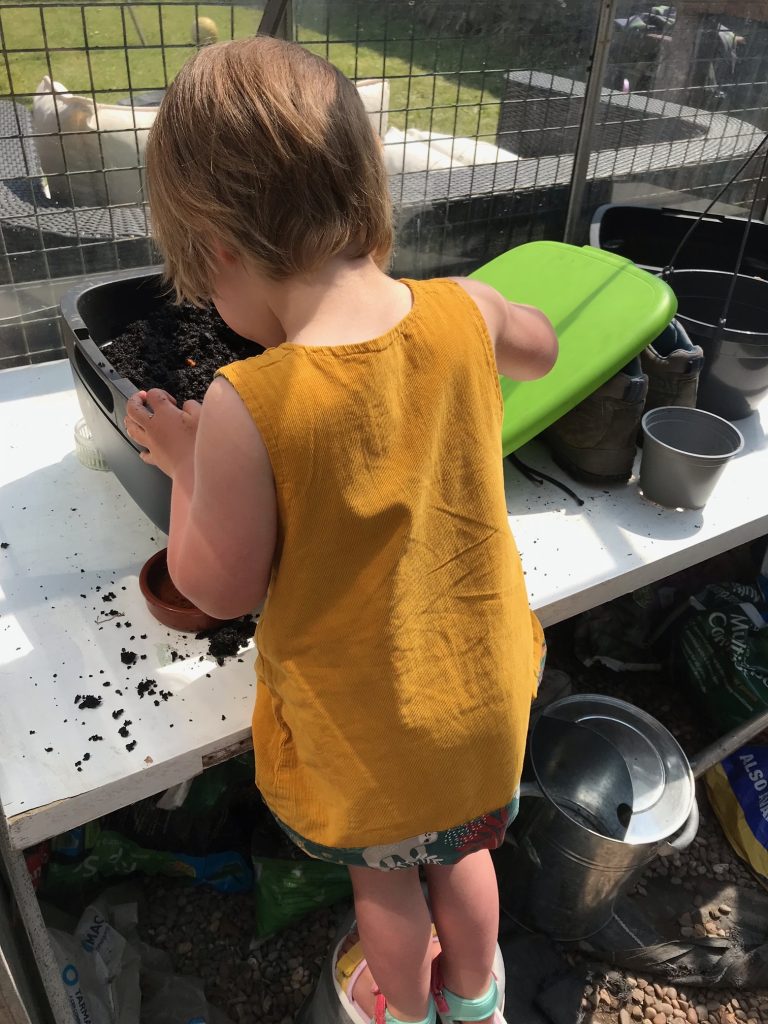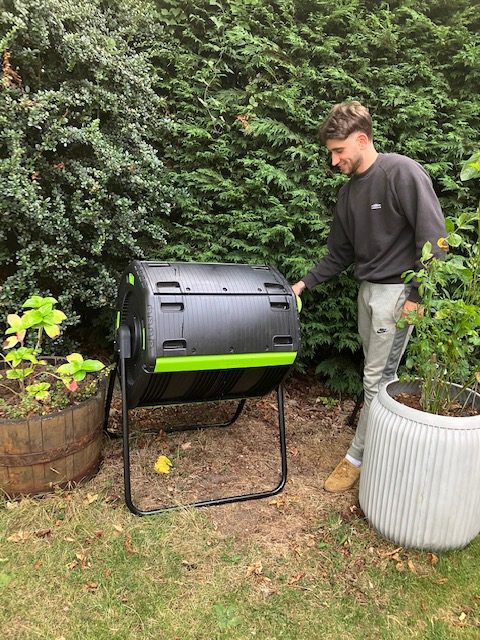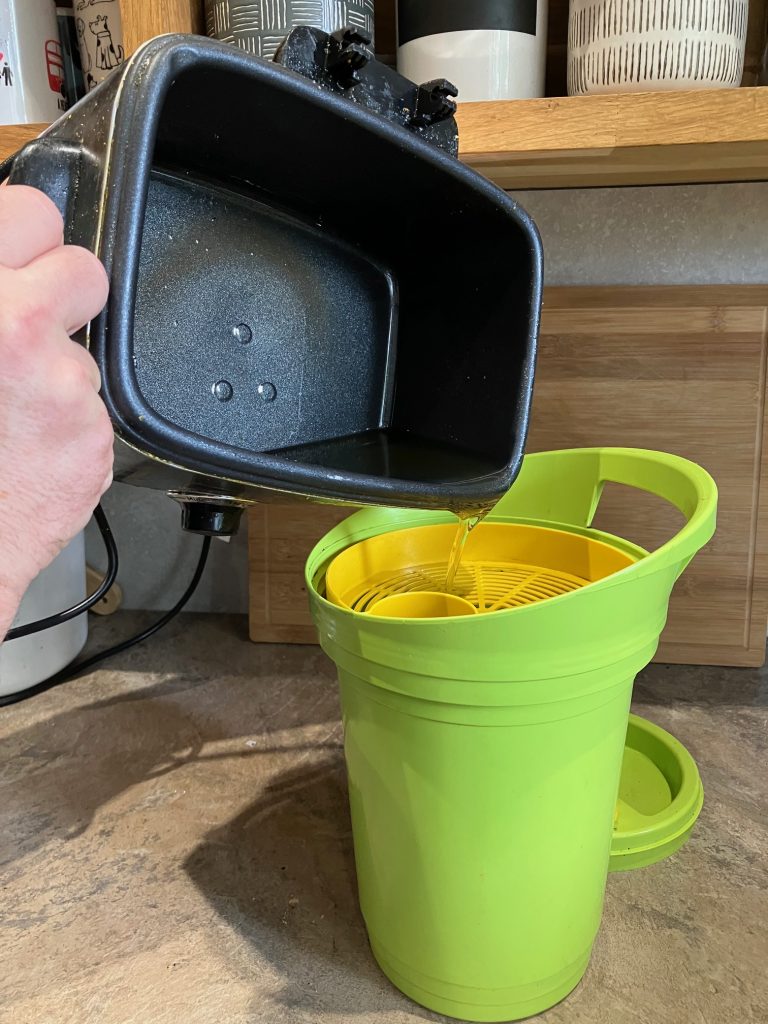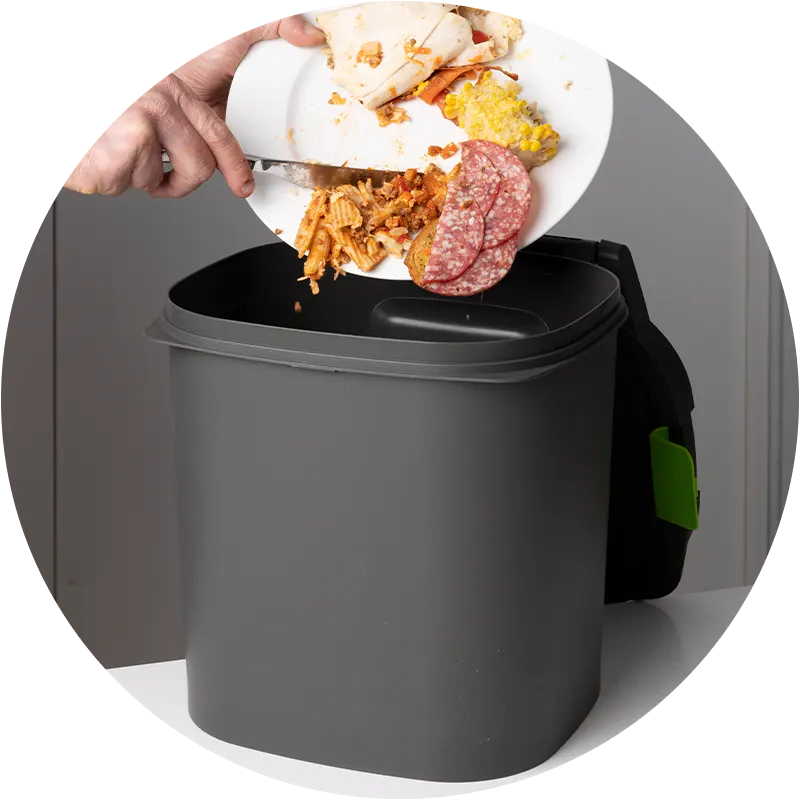Snow is on the ground at Great Green Systems HQ right now – providing a timely reminder not to leave your little green friend out in the cold. (I’m thinking of your compost bin but perhaps you have other little green friends).
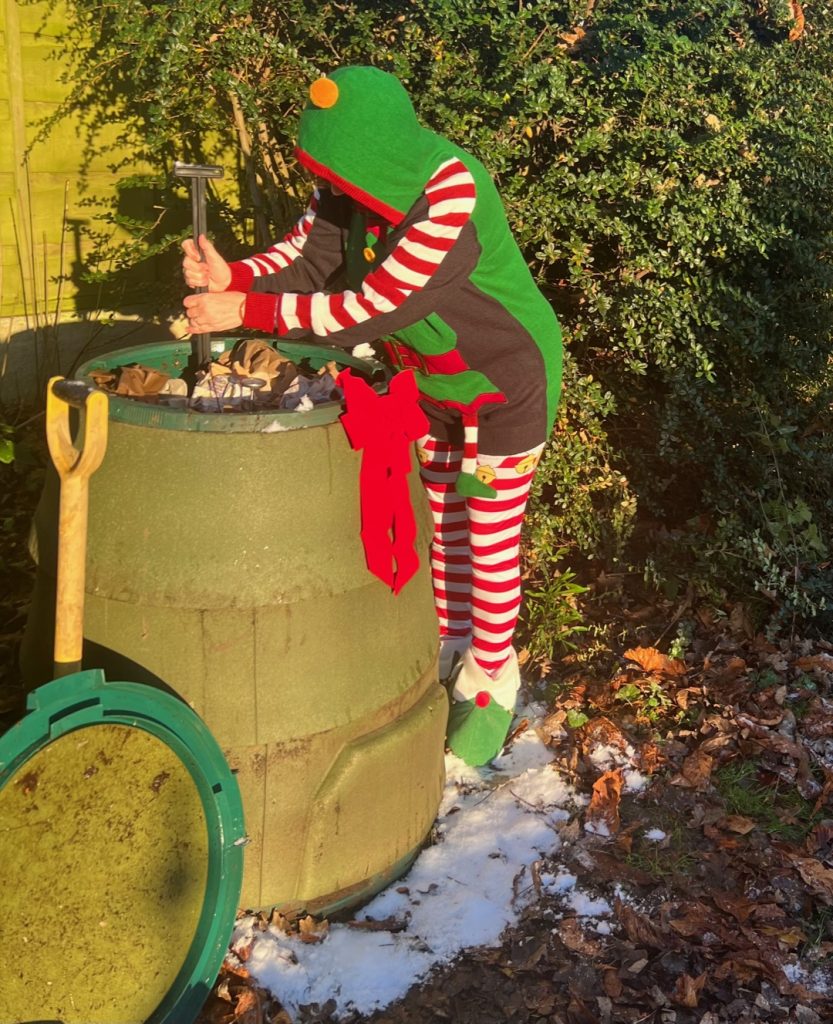
Keep ‘elfy’ conditions in your composter
Follow our cold weather tips and keeeep composting! (with apologies to Strictly Come Dancing…)
Green Johanna
- Check that the vents at the bottom of the Johanna are not blocked by leaves or debris (or snow!) Air is taken in at ground level so keep this area clear so that air can enter freely. The incoming air goes up past the four ventilation plates on the inside of the base plate, past the maturing compost layer up into the decomposing compost where it provides oxygen for the composting micro-organisms.
- Also check that the Johanna’s Insulating Jacket doesn’t cover the ventilation holes. The jacket should be installed with the two upper sections pulled down so they overlap the section underneath by about 5 cms. Doing this leaves the ventilation holes clear.
- In freezing weather limit ventilation through the lid’s ventilation system – twist the lid towards the minimum setting (in summer it should be fully open on the maximum setting).
- The pre-Christmas period is a good time for getting some great carbon sources ready. Ordering presents or appliances online means they might arrive packed in lovely, corrugated cardboard, which is fantastic for adding airflow to the bin.
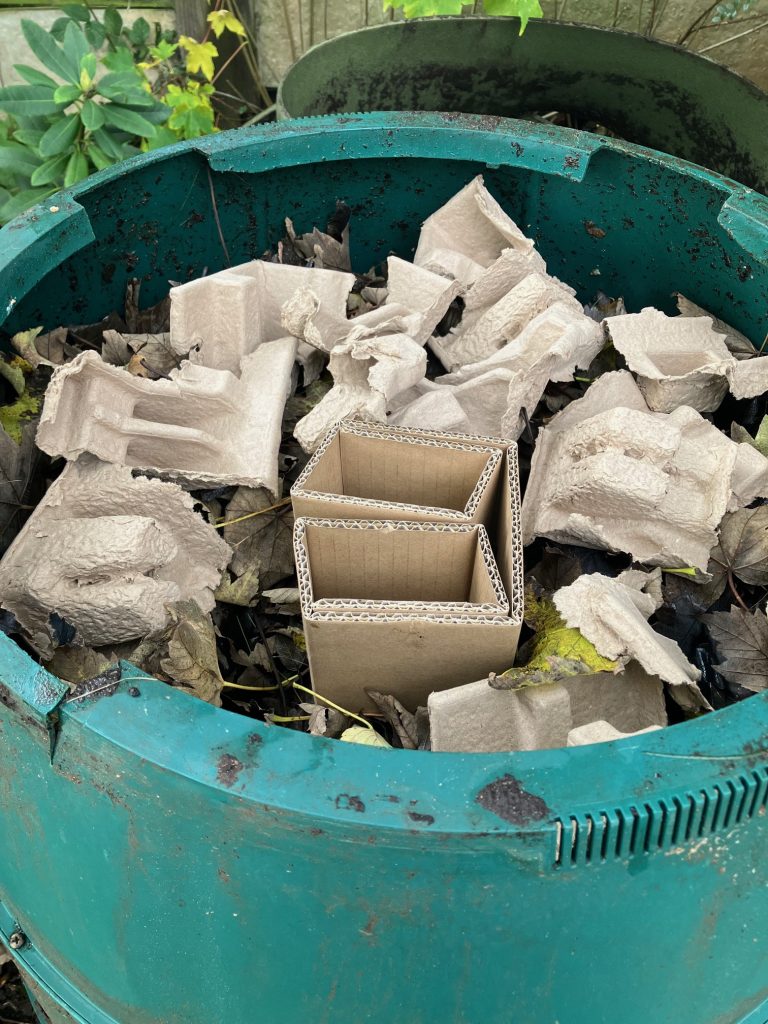
Packaging provides airflow
- Now you’ll be glad you stored those leaves. Keep them in lidded containers to keep them dry. If you have loads, keep a large composter, such as the Graf Thermo King 900L, specifically for leaf mulch and take some leaves from the top as carbon sources for the Johanna. Dead leaves are great for absorbing moisture in waste with a high water content, such as bokashi bin contents or fruit waste.
- If you see tree surgeons at work locally, it’s worth asking if you could take some woodchips or they might deliver them to you for free. Wood chips are good for creating airflow and adding plenty of fungi to the bin.
- Give the bin’s contents a boost by adding bokashi bran, ground coffee granules or a layer of soil or mature compost.
- If you’re setting your Johanna up in winter, don’t be tempted to rush and omit the foundation layer of around 15 -20cms of woody garden waste. Some people ask us if they really have to do this, and the answer is yes. From the beginning, it helps to create airflow from the bottom up through the composter as well as adding structure for drainage. Then add two bucketsful of soil or mature compost to add a healthy amount of micro-organisms right from the start.
Bokashi bins
- If you’ve kept your bokashi bins fermenting in a shaded spot outside in the summer, move them indoors. Bokashi bins shouldn’t be exposed to extreme temperatures, which might mean micro-organisms overheating or freezing depending on the season. When the bin is full and needs to be left to ferment for two to three weeks, if you want it out of the way store it in a garage or shed as long as it won’t freeze.
Wormery
- Wormeries should also be placed where they won’t be exposed to extremes of temperatures. Depending on your location, move an outdoors wormery to a sheltered area or if it is to stay outside, cover with a tarpaulin. Keep worms warm with plenty of bedding and a hessian blanket.
Green Cone
- Stock up on accelerator powder – you will need more than usual to boost the process now that there is less sun to provide energy for the solar-powered unit.
- Even if you have more food waste than usual over the Christmas period, make sure you never allow food waste to come higher than the Cone’s underground basket. Food waste must never be above ground level inside the Cone itself.
Remember your usual best composting practices, whatever the weather:
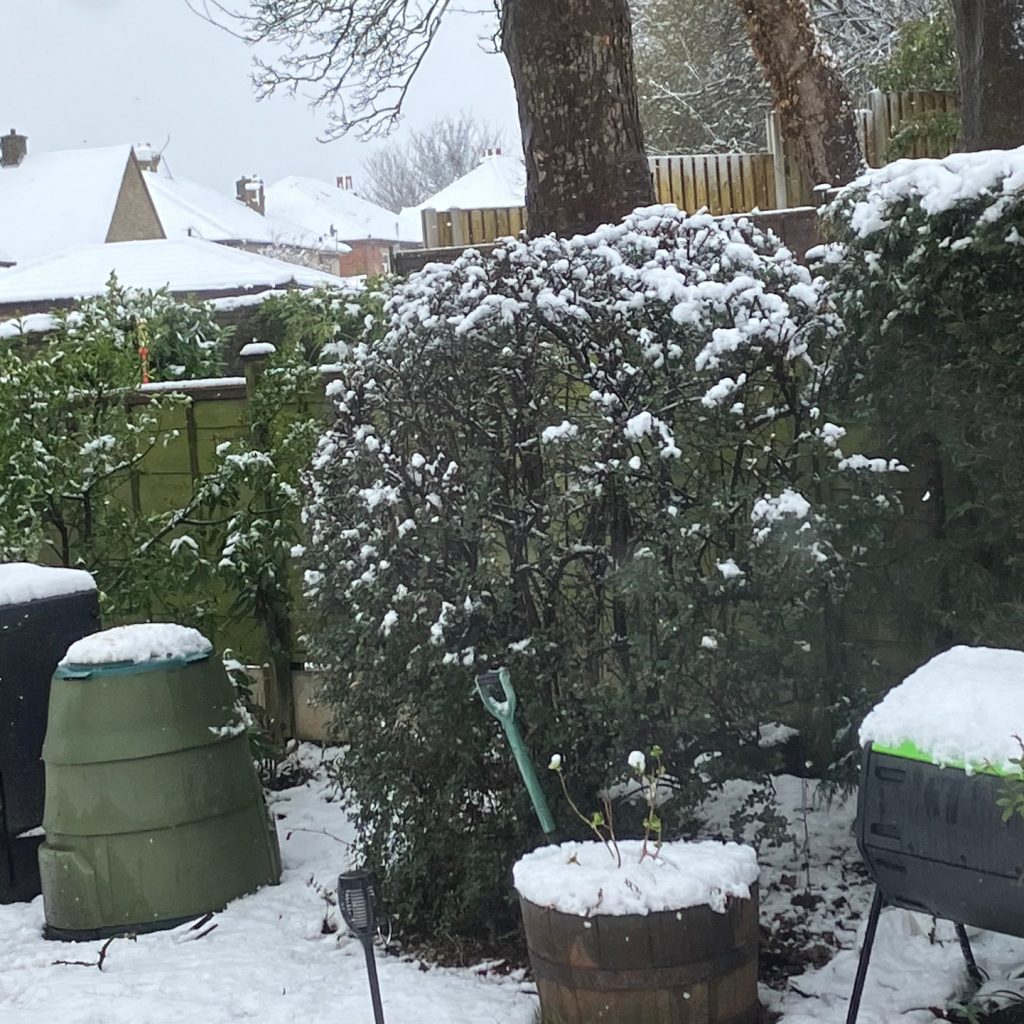
- Regular feeding: Keep adding to the bin to maintain the composting process. The generous 330 litre size of the Green Johanna means the mass of contents acts as an insulating factor. If your household is small and struggles to add enough content in winter with the lack of gardening clippings, accept food waste from neighbours, as some of our customers do.
- Chop items up. Smaller items provide a larger surface area for more microbes to work on. This means higher temperatures and faster breakdown.
- Ensure a good balance – adding a caddy of food waste (rich in nitrogen) followed by a caddy of carbon-rich materials (dead leaves, shredded paper and cardboard, twigs, branches, woodchips) is a good habit to get into.
- Check moisture levels – especially if you’ve added a lot of dry autumn leaves (carbon) which could make the mix dry. Composting contents should have a moisture level of around 50 per cent, with the consistency of a wrung-out bath sponge. Add rainwater from a water butt (in a watering can with a fine rose) if the materials are becoming too dry. Don’t just check the top layer, get handfuls from lower down the bin too. Check by using a moisture meter or by doing the squeeze test – wearing gloves, take large handfuls of compost in both hands and squeeze – only a drop or two of liquid should emerge. If there are no drops, the compost is too dry and needs watering.
- Regular aeration – it’s important to keep adding air to the bin as the aerobic microbes breaking down the waste need air to breathe. Without air, the contents will turn anaerobic and start to smell.
Don’t forget to pay attention – getting into the habit of knowing what’s happening in the bin enables you to take corrective measures to prevent problems.


